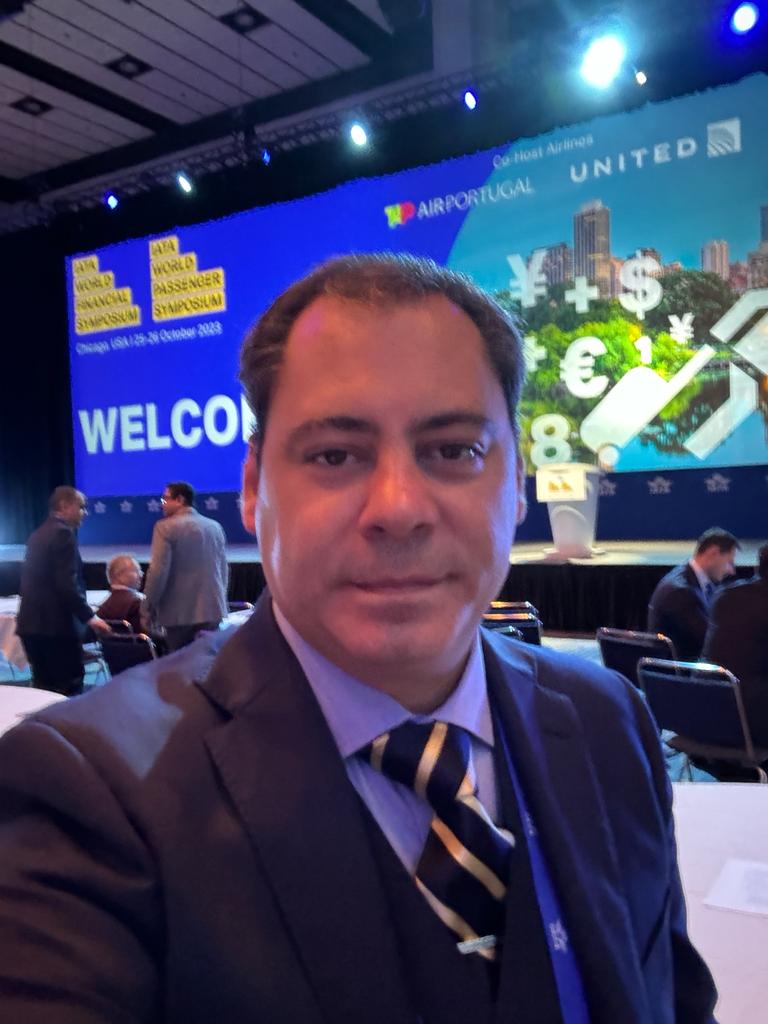
0
Euroairlines was present at the IATA World Financial Symposium 2023 in Chicago. Euroairlines was represented by Giorgio Rondinelli at the edition organized by IATA for airlines in Chicago. Finances of airlines were naturally one of the main focal points at the World Financial and Passenger Symposiums.
Joseph Shanahan, Global Aviation Director at Citi Bank, explained that airlines generally raised more money than they needed during the pandemic and, therefore, have good overall liquidity. “Airlines did a fantastic job during COVID,” he said.
However, increased demand and sustainability mean that money is being spent. Airlines are hesitant to raise more capital at this time due to high interest rates. Shanahan suspected that airline liquidity won’t last long enough, as high rates are likely to persist for a few more years.
Therefore, airlines will soon return to accessing financing. In the United States, bond issuance markets are expected to be the most active. In China and the Asia-Pacific region, local banks will be the main sources of financing as usual, while other areas will focus more on sales and leasebacks, as well as export credit agencies.
Much of the airline’s money will be spent on sustainability initiatives in the future. Nicklas Lund, CEO of Rockton Partners, estimated that the industry will need to invest around $5 trillion, or about $175 billion per year, to achieve its goal of net-zero carbon emissions by 2050. Yet, the profit for airlines in 2023 will be only $10 million, and that’s after three years of significant losses. It’s clear that aviation will need to access financing to support its sustainability initiatives.
Some of the money will come from the aviation sector, but public and private capital will be essential. Public capital will be based on programs in individual countries or regions, while private capital will come from the oil and gas industry, capital markets, and bank debt providers, among others. Venture capital may get involved, but Lund suspected they wouldn’t be immediately attracted.
Lund expects that, ultimately, a virtuous circle will be created where investment leads to projects that provide tangible carbon reduction results and make future investment more likely. But transformative technologies and significant gains will be needed.
Lund explained that the price of electricity derived from solar energy decreased by 89% between 2009 and 2019, and the cost of wind electricity saw a 70% reduction. Aviation will need changes of this magnitude, perhaps in the production of sustainable aviation fuels (SAF) or the energy density of batteries; a small annual improvement won’t be sufficient.

“Aviation will have to punch above its weight,” he said, noting that the industry will require about 20% of global electricity production and 30% of global green hydrogen production to achieve its 2050 goals.
Lund says that if aviation achieves this level of transformation, it will inevitably impact business models. The regional sector landscape could be completely disrupted by new propulsion technologies, for example. Meanwhile, electric vertical take-off and landing (eVTOL) aircraft will power airports, and there may even be sustainable medium-range aircraft. At the same time, costs, especially those of SAF, will undoubtedly increase and this will trickle down to ticket prices.
“In general, there are reasons to be optimistic for 2024,” said Willie Walsh, CEO of IATA. “There are many issues that are not under an airline’s control, but we need to influence the weak points and collaborate on solutions.”
The conversation focused on the latest results of the IATA Global Passenger Survey (GPS). The GPS shows that most passengers are satisfied with the travel experience, and there are encouraging signs. Speed and comfort were highlighted as passengers’ top requirements, but the panel emphasized that this doesn’t necessarily have to come at a higher cost. Instead, it could be beneficial for both airlines and passengers through simpler digital processes.
Too often, said Adrian Neuhauser, CEO of Avianca, something is done because it has always been done. Luis Rodrigues, CEO of TAP Air Portugal, referred to this as “the economy of simplicity.” It’s easier to keep doing things as they’ve always been done than to step back and strive for a new and improved methodology.
Biometrics are an important facilitator for streamlining precise processes. They have been in place for many years, and the technology and its acceptance continue to improve. The GPS shows that passengers are becoming increasingly comfortable with biometrics.
The passenger experience also depends on better payment methods. But Neuhauser emphasized that it’s a complex and rapidly changing area. “There are hardware, software, rules, and fraud issues,” he said.
Rodrigues agreed and said that revenue should not be lost because a passenger wants to pay with a certain method.
The panel accepted the GPS’s conclusion that luggage remains a weak point. In general, Rodrigues said, luggage handling remains the same as it was 20 years ago. Technology must be used to reinvent the sector.

The panel:
Adrian Neuhauser, CEO of Avianca
Luís Rodrigues, CEO of TAP Air Portugal
Willie Walsh, CEO of IATA
Karen Walker, Editor in Chief of Air Transport World (Moderator)

Off